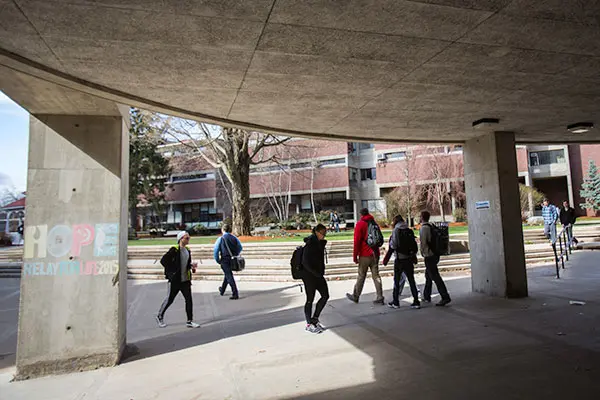Charting Pathways to Success for all Bay State Students

03/29/2015
MetroWest Daily News
By Marty Meehan and Beth Anderson
Despite one of the strongest public education systems in the United States, Massachusetts still faces stark disparities rooted in economic status and highly correlated with race. These disparities rob children of their full educational and economic potential. Though progress has been made to reduce dropout rates and boost high school graduation rates, if we truly want to address the achievement gap, we must measure ourselves against a higher standard – college completion.
A college degree is the gateway to success in today’s economy. Getting students from all backgrounds to achieve that goal will require transparent accountability measures, creative community partnerships and unique educational models.
A recent national study highlighted stark wealth-based differences in educational attainment. While about 77 percent of students from wealthy families graduate from college, the number plummets to 9 percent for poor students.
As many as two-thirds of Massachusetts community college students and up to 40 percent of students at our public universities require remedial coursework. These students, often from poor and urban communities, are allowed to graduate from high school, only to find they need to do additional work on high school-level content in college. Almost half of all students at four-year universities do not graduate within six years and only 16 percent of community college students complete an associate’s degree within three years.
Massachusetts’ leaders are stepping forward to confront these chasms in educational attainment. Look no further than the Lawrence Public School turnaround, where new leadership has leveraged community partnerships, focused on extending learning time, and constructed innovative collaborations with outside educational organizations to dramatically improve graduation rates in a school district that has struggled for decades. Proven charter school operators like UP Academy, Community Day Charter, Lawrence Family Development and Phoenix Charter Academy Network formed partnerships with the district to address inequality by providing unique pathways to put disadvantaged and disengaged youth on the road to college.
This commitment to innovation and accountability is also driving transformation in higher education. Recognizing time and cost barriers that low-income college students face, UMass Lowell is designing a three-year pathway to a bachelor’s degree and since 2007, has expanded its efforts to increase access to higher education for underrepresented populations, which research shows face the greatest challenges in attaining a college degree, by raising millions of dollars for scholarships. During that timeframe, the university has seen the enrollment by students who identify themselves as being from diverse backgrounds more than double.
Leaders at Northern Essex, Bunker Hill and Springfield Technical community colleges are working to ensure smooth transitions from high school by ensuring that offerings at area public schools are aligned with the community colleges’ curricula and programs. A number of burgeoning dual enrollment programs allow high school students to earn college credits, helping them acclimate to the increased rigors of a college curriculum.
There is still more to be done. The transition team appointed by the Baker-Polito Administration has outlined a series of initiatives that cover a child’s education from birth through college to build on the progress we’ve accomplished.
But this is just a start. We believe that the problems of educational access Massachusetts students face can be resolved by stressing real accountability. That means high schools that prepare their students for college and colleges do their part to ensure students graduate. It also requires a statewide commitment to serving those most in need and creating a welcoming environment that encourages the enormously talented innovators we already have to devise creative solutions to our educational needs.
Marty Meehan is the Chancellor of UMass Lowell; Beth Anderson is the CEO and Founder of Phoenix Charter Academy Network, which operates charter public schools in Chelsea, Lawrence and Springfield. They co-chaired Gov. Baker’s Education Transition Team.
